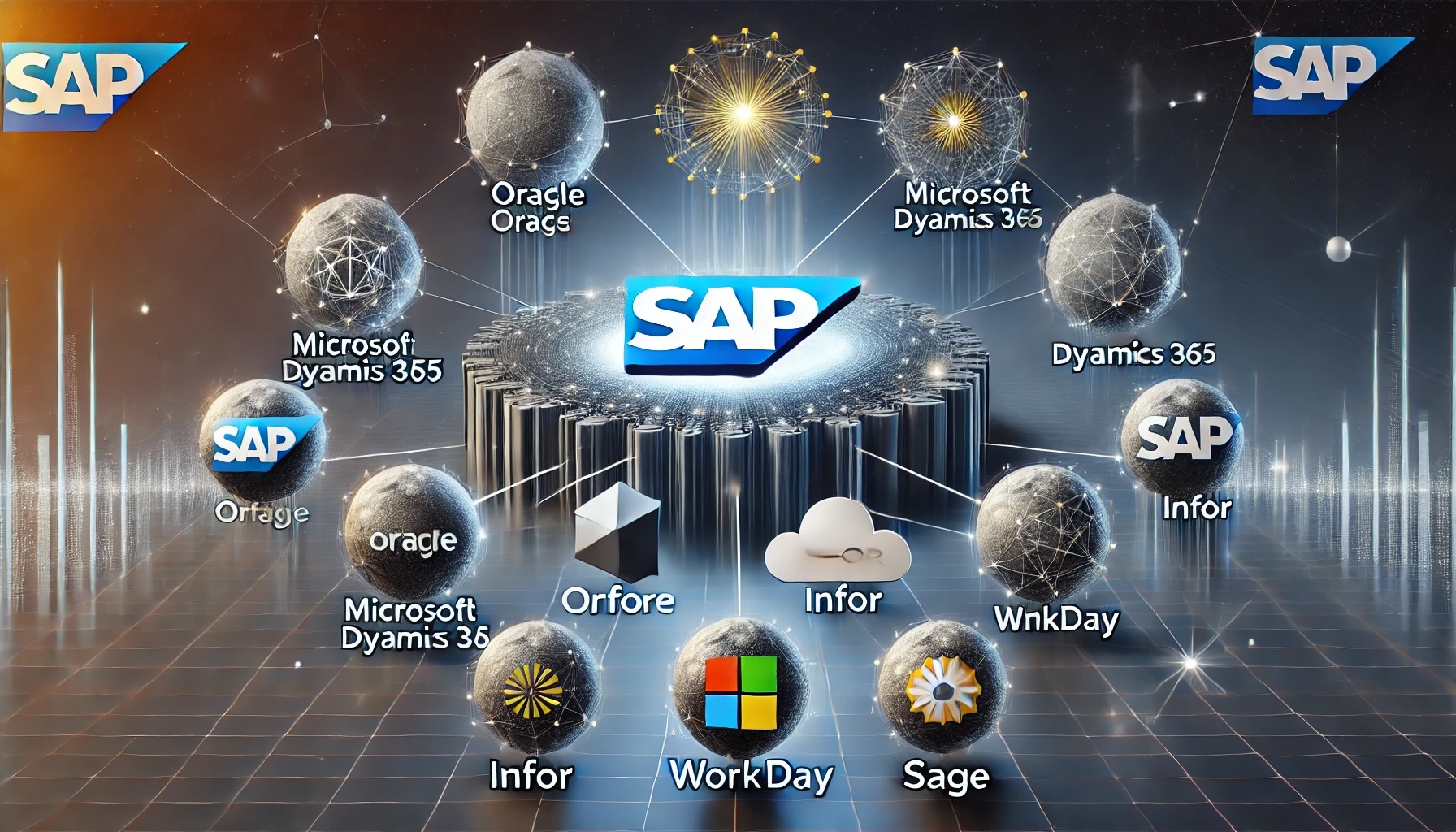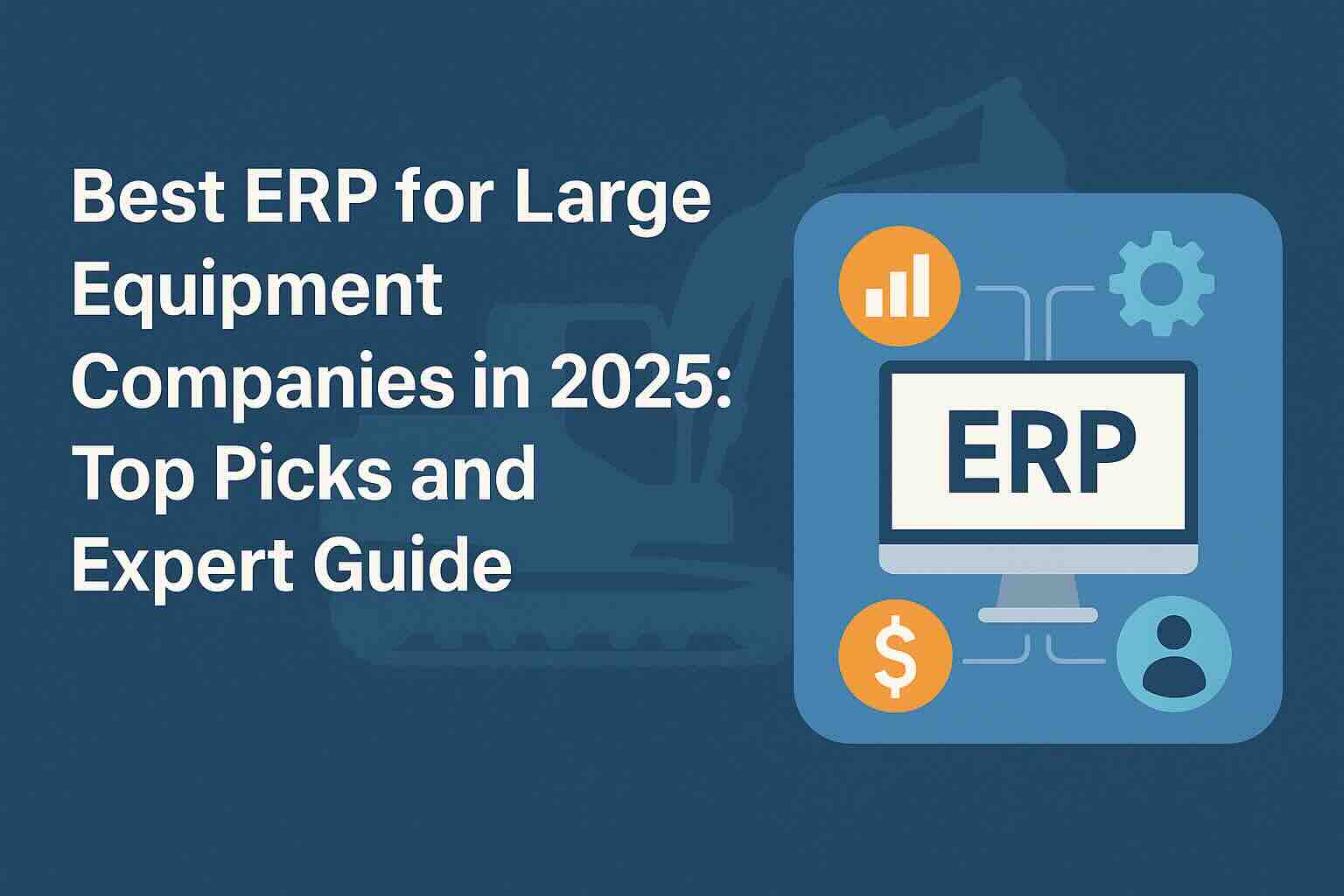Best Financial ERP Software: A Comprehensive Guide

In today’s fast-paced business environment, managing finances efficiently is critical for success. Financial Enterprise Resource Planning (ERP) software offers businesses a centralized platform to manage their financial data, streamline workflows, and ensure regulatory compliance. However, with a myriad of options available, identifying the best financial ERP software can be challenging. In this guide, we’ll explore top contenders in the market, their features, and how they cater to diverse business needs.
What is Financial ERP Software?
Financial ERP software is an integrated solution designed to help organizations manage their financial processes, such as accounting, budgeting, forecasting, and reporting. By centralizing financial data and automating routine tasks, financial ERP systems allow businesses to make informed decisions, reduce errors, and improve overall efficiency.
Features to Look for in the Best Financial ERP Software
Before diving into the top software options, it’s important to understand the key features to consider:
- Comprehensive Financial Management: The software should handle core financial functions like general ledger, accounts payable, accounts receivable, and payroll.
- Scalability: It should grow with your business, accommodating increased users, transactions, and complexities.
- User-Friendly Interface: A clean and intuitive interface ensures faster adoption and reduces the learning curve for employees.
- Customizable Reporting: Advanced reporting tools allow businesses to tailor reports to their specific needs.
- Cloud Capabilities: Cloud-based solutions offer flexibility, real-time data access, and enhanced security.
- Integration with Other Systems: Seamless integration with CRM, inventory, and supply chain management systems is vital for smooth operations.
- Compliance and Security: The software must support compliance with industry regulations and ensure robust data security.
Top Financial ERP Software in 2025
1. SAP S/4HANA
SAP S/4HANA is a leading name in the ERP industry, renowned for its robust financial management capabilities.
- Key Features:
- Advanced analytics with real-time insights.
- Comprehensive tools for financial planning and analysis.
- Seamless integration with other SAP modules.
- Cloud and on-premise deployment options.
- Ideal For: Large enterprises requiring extensive customization and scalability.
To find out more about SAP S/4HANA you can visit this link.
2. Oracle NetSuite
Oracle NetSuite is a cloud-based ERP solution designed for small to medium-sized businesses (SMBs) and large enterprises alike.
- Key Features:
- Automated financial processes, including invoicing and expense management.
- Powerful financial planning and budgeting tools.
- Multi-currency and multi-subsidiary support.
- Pre-configured dashboards for actionable insights.
- Ideal For: Growing businesses needing a highly scalable and customizable solution.
To find out more about Oracle NetSuite you can visit this link.
3. Microsoft Dynamics 365 Finance
Microsoft Dynamics 365 Finance offers a seamless integration with the Microsoft ecosystem, making it a top choice for businesses already using Microsoft products.
- Key Features:
- AI-driven financial insights and forecasting.
- Extensive global regulatory compliance tools.
- Intuitive interface with familiar Microsoft design.
- Integration with Power BI for advanced analytics.
- Ideal For: Organizations looking for integration with Microsoft Office and Azure services.
To find out more about Microsoft Dynamics you can visit this link.
4. Infor CloudSuite Financials
Infor CloudSuite Financials is a cloud-first ERP designed for complex financial management.
- Key Features:
- Robust financial planning and analysis tools.
- Advanced AI-powered automation for routine tasks.
- Deep industry-specific capabilities.
- Flexible deployment options.
- Ideal For: Enterprises in manufacturing, healthcare, and other industries requiring tailored solutions.
To find out more about Infor you can visit this link.
5. QuickBooks Enterprise
QuickBooks Enterprise is a popular choice for small to medium-sized businesses due to its affordability and user-friendly design.
- Key Features:
- Simplified accounting and payroll management.
- Customizable reporting and dashboards.
- Inventory and sales tracking.
- Cloud hosting for remote access.
- Ideal For: SMBs transitioning from basic accounting software to a comprehensive ERP.
To find out more about Quickbooks you can visit this link.
6. Workday Financial Management
Workday Financial Management combines advanced financial features with strong HR capabilities, making it a unique choice for businesses seeking a dual-focus solution.
- Key Features:
- Unified platform for financial and HR data.
- Real-time analytics and reporting.
- Automated workflows and approvals.
- Robust audit and compliance features.
- Ideal For: Organizations prioritizing financial and human capital management integration.
To find out more about Workday you can visit this link.
7. Acumatica Cloud ERP
Acumatica offers a flexible and cost-effective cloud-based ERP solution for growing businesses.
- Key Features:
- Comprehensive financial tools, including project accounting.
- Open API for easy integration with third-party applications.
- User-friendly interface and mobile access.
- Real-time data visibility.
- Ideal For: SMBs and mid-sized enterprises seeking affordability and flexibility.
To find out more about Acumatica you can visit this link.
Benefits of Using Financial ERP Software
Investing in the best financial ERP software can transform your business operations. Here are some key benefits:
- Enhanced Decision-Making: Real-time data and analytics provide actionable insights, enabling better strategic planning.
- Time Savings: Automation of routine financial tasks allows employees to focus on higher-value activities.
- Cost Efficiency: By streamlining processes and reducing errors, businesses can save money in the long run.
- Regulatory Compliance: Financial ERP software ensures adherence to tax laws and other regulations.
- Scalability: As your business grows, the software can adapt to increased complexities and demands.
How to Choose the Right Financial ERP Software
Selecting the right ERP solution depends on your business’s unique needs. Consider the following steps:
- Assess Your Requirements: Determine the core financial functions and features you need.
- Set a Budget: Identify how much you’re willing to invest in an ERP system.
- Research Vendors: Compare software options based on features, reviews, and scalability.
- Request Demos: Engage vendors for demonstrations to evaluate usability and functionality.
- Consider Support and Training: Ensure the vendor offers adequate support and training for seamless implementation.
Conclusion
The best financial ERP software is the one that aligns with your business needs, scales with your growth, and enhances financial efficiency. Whether you’re a small business seeking affordability or a large enterprise requiring robust features, options like SAP S/4HANA, Oracle NetSuite, and Microsoft Dynamics 365 Finance offer unparalleled capabilities. Take the time to assess your requirements, explore demos, and make an informed decision to drive your business toward success.
Ready to Transform Your Business?
With our AI-powered Compare ERP tool, you can effortlessly explore and compare solutions tailored to your unique business needs. It’s free to use, and you’ll receive a guaranteed discount on your first year’s license fees with a referral from Compare ERP. Take the first step toward streamlining your processes and boosting productivity and start comparing today!









